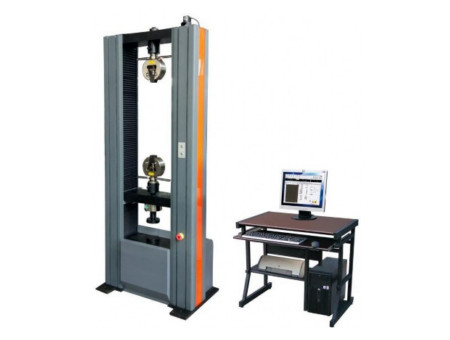What are the effects of too much tension in a tensile testing machine?
A tensile tester is a device used to measure the tensile, peel or compressive strength of a material. If excessive tensile force is applied in a tensile test, the following effects may occur:
1. Material damage: Excessive tensile force may cause the material to exceed its load-bearing limit, thus causing damage. This may manifest itself as fracture, tearing, tensile or compressive failure, depending on the type of material being tested and the test method.
2. Inaccurate data: The purpose of a tensile test is to measure the strength and properties of a material, and excessive tensile forces can lead to inaccurate data. If the material is damaged or deformed during the test, the strength values obtained may not represent the true performance of the material.

3. Safety Risk: Excessive tensile forces applied may result in damage to or failure of the test equipment, thus posing a safety risk. Testers and accessories may not be able to withstand forces in excess of their design capacity, which may result in damage to the equipment, injury to personnel, or accidents.
4. Loss of Repeatability: Excessive tensile forces may result in reduced repeatability of test results. If tension forces are applied inconsistently from test to test, accurate comparisons and data analysis are not possible. Ensuring that the tension force is applied within the appropriate range ensures the reliability and repeatability of the test results.
Therefore, it is important to follow proper test methods and operating procedures when performing a tensile test to ensure that the applied tensile force is within the tolerance range of the test material and equipment. This ensures the accuracy, safety and repeatability of the test and gives reliable test results.

